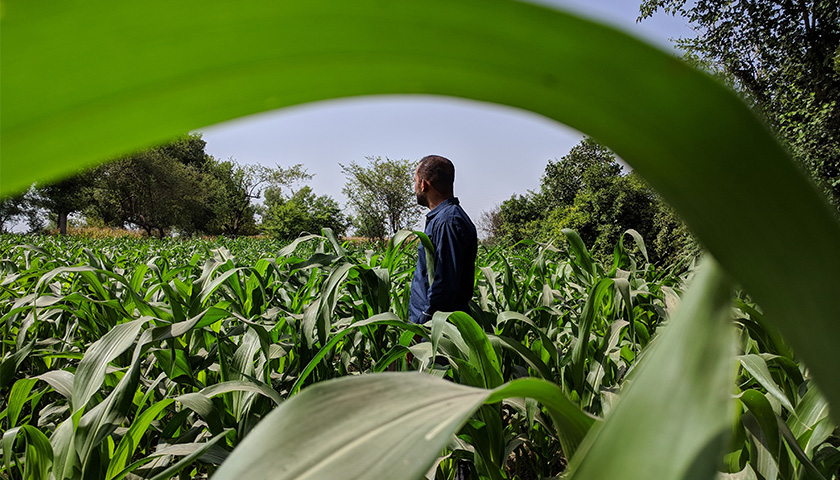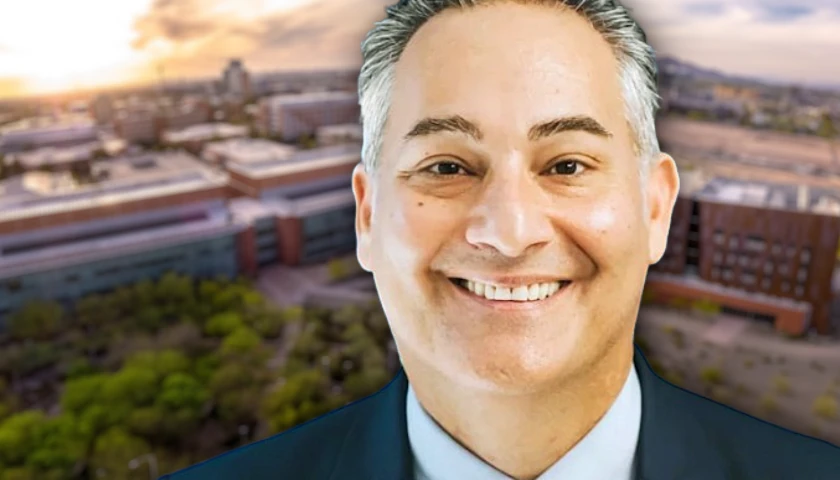The White House hasn’t addressed the court-ordered injunctions against President Joe Biden’s loan forgiveness program that excludes white farmers. The latest ruling came late last week through a Tennessee farmer’s challenge to the program’s alleged racial discrimination. United States District Judge Thomas Anderson agreed with the Tennessee farmer’s take on the program’s discriminatory practices, ruling the program unconstitutional and issuing a nationwide injunction to halt it on Thursday in the case, Holman v. Vilsack et al. Another federal judge in Wisconsin issued a similar ruling last month, and a little over two weeks ago a federal judge in a similar Florida case offered a concurring ruling.
The Southeastern Legal Foundation (SLF) and Mountain States Legal Foundation (MSLF) brought the case with the latest ruling on behalf of Tennessee farmer Rob Holman. According to the Biden Administration’s loan forgiveness program in the American Rescue Plan Act of 2021, Holman was ineligible for forgiveness on his farm loans solely because he’s white. According to the law, only “socially disadvantaged groups” were eligible for the program granting up to 120 percent of loan forgiveness, re-application for government backed loans, and a cash gift of 20 percent of the loan’s value to cover any income tax liability. Socially disadvantaged groups were defined as those with members who faced racial or ethnic prejudice.
In an interview with The Tennessee Star, Tennessean SLF director of litigation Braden Boucek explained that this wasn’t just a big win for the nation’s farmers – fellow Tennesseans benefit greatly from this ruling. Agriculture remains a significant portion of Tennessee’s economy. Additionally, this ruling establishes a precedent preventing race from being the main factor for other loan forgiveness programs.
“It’s a good thing for all of us. This is one of the most overtly discriminatory programs that has ever come out of Congress, certainly out of our lifetime,” asserted Boucek. “Race is a really crude way to evaluate someone.”
Boucek explained further that the government’s main argument in this case pertained to the pandemic’s impact on farmers of color. Specifically, the United States Department of Agriculture (USDA) argued that the pandemic disproportionately impacted farmers that were Black, Hispanic, American Indian, Native Alaskan, and Hawaiian. SFL’s winning argument focused on the fact that pandemics aren’t inherently discriminatory.
“Pandemics don’t discriminate on the basis of race. Bob was just as affected by the downturn of markets as anybody with a different skin color,” said Boucek.
In a press release accompanying the ruling, Boucek asserted that this ruling continued the protection of Americans’ civil rights.
“Today’s victory again proves that the Constitution does not allow the government to treat its citizens differently based on their skin color. State-sanctioned discrimination is wrong and unconstitutional,” said Boucek. “Race preferences cannot be allowed to rise again under the name of equity. The Constitution is strong and has held again in the face of yet another challenge to its guarantee of equality under the law and the self-evident truth that all men are created equal.”
SLF general counsel Kimberly Hermann explained that one of the main motivators behind the race-based farm loan forgiveness program, equity, was an excuse for racial discrimination.
“The Biden Administration uses equity as a license to punish Americans – here farmers – because of their skin color,” said Hermann. “The Court’s order sends a clear message to President Biden that racially exclusive programs, whether on a farm or in a school, are unconstitutional.”
Following Thursday’s injunction, the American Indian Farmers and the National Black Farmers Association filed a motion to intervene as defendants in the case.
This ruling follows a flurry of lawsuits filed against the USDA concerning Biden’s loan forgiveness program. SLF and MSFL also filed a similar case for a Wyoming farmer back in May: Carpenter v. Vilsack et al.
Just last Wednesday, a group of White Minnesota farmers sued the USDA through the Upper Midwest Law Center in Nuest et al. v. Vilsack et al.
The collection of lawsuits is a legal strategy to prompt permanent court action against this program. In a statement to reporters, Upper Midwest Law Center spokesman Bill Walsh explained that last month’s Wisconsin decision was temporary, meaning that multiple cases would need to be filed in order to reach a final decision from the Supreme Court (SCOTUS).
“The Wisconsin decision is only a temporary halt, subject to further court review,” explained Walsh. “The only way to assure a final determination against this program is for multiple cases to be filed in several Appeals Court Circuits and get SCOTUS for a final decision.”
At the time of press, White House Press Secretary Jen Psaki hasn’t addressed the court rulings in press briefings.
– – –
Corinne Murdock is a reporter at The Tennessee Star and the Star News Network. Follow her latest on Twitter, or email tips to [email protected].









Mr. Biden is probably having difficulty with dressing and feeding himself by now. Why would anyone think he would be able to respond regarding a court injunction ?
If you don’t talk about it, maybe it doesn’t exist, right? This administration has really exposed the dark underbelly that exists in our country.
Unreal.